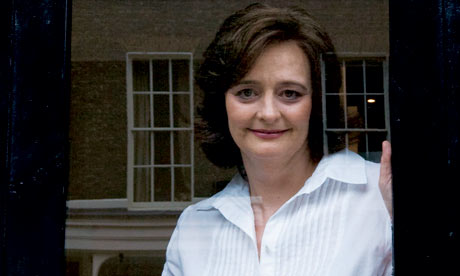
Up to 65,000 people in the UK could die from swine flu if the pandemic achieves it worst possible potential, the government warned today.
The chief medical officer, Professor Sir Liam Donaldson, said that in the worst case scenario 30% of the UK population could be infected by the H1N1 virus, with 65,000 killed.
The best case scenario is that 5% of the population contract the virus, with 3,100 deaths.
The estimates were released as the government confirmed that 29 people had died in the UK after contracting swine flu.
The flu is spreading fast across much of Britain, with 55,000 new cases in England last week, according to the Health Protection Agency.
The death toll was released by the Department of Health as the Scottish health secretary, Nicola Sturgeon, announced that a female tourist who had the H1N1 virus died in hospital yesterday.
The woman, who had other serious health problems, died at Raigmore hospital in Inverness last night. It is unclear whether her death has been included in the official toll.
Donaldson warned against panic about the projected death toll from a swine flu pandemic, noting that there had been 21,000 extra deaths over the winter of 1999-2000 due to seasonal flu and this had raised little public concern.
Among new suspected swine flu cases is Cherie Blair. The barrister and wife of the former prime minister pulled out of an honorary ceremony at Liverpool Hope University after falling ill and is reported to have been given a course of Tamiflu. Tony Blair and their children have shown no signs of infection.
Health ministers from across the UK – including those from Scotland, Wales and Northern Ireland – are attending weekly meetings of the government's civil contingencies committee, Cobra, to assess the impact of the disease.
Information collected by the Royal College of General Practitioners' research and surveillance centre in Birmingham, which monitors communicable and respiratory diseases, shows that the total of those affected by the H1N1 virus rose by 46% in the seven days up to last Sunday.
The rate of people diagnosed with influenza-like illness in the north of England rose from 6.6 per 100,000 of population between 29 June and 6 July to 37.2 per 100,000 between 6 and 16 July – almost six times as many.
It more than doubled in central England from 42.8 to 93.9 per 100,000 but only rose slightly in the south from 72.1 to 74.9 per 100,000. However, cases in London – a swine flu "hotspot" along with the West Midlands – declined from about 180 to 140 per 100,000. Across England, the incidence increased from 50.3 to 73.42 during that week, a rise of 46%.
Professor Steve Field, the chairman of the Royal College, said: "Swine flu is spreading rapidly across the whole of the country now. GPs are saying that they are coming under a lot of pressure from patients who have it and many GPs say that the publicity surrounding the death of six-year-old London schoolgirl Chloe Buckley has increased demand and made people more anxious, although there is no reason for them to be so."
Children between five and 14 remain the worst affected, with an incidence rate of 160 per 100,000. The rate among under-fives is 114 per 100,000 and 89.4 among those aged 15-44.
The Royal College of GPs today complained that a submission it made to a House of Lords committee had been taken out of context. It insisted that it was "very pleased" with the responsiveness of health officials to the emergency. It had been asked to provide feedback from GPs about swine flu. Among one of the comments was that: "Family doctors also noted that conflicting advice was being provided by different agencies."
The comment was connected to an apparent discrepancy between a message on the NHS Direct website that appears to indicate all those with confirmed swine flu will receive Tamiflu or Relenza to help reduce the virus's severity, and separate advice from the Royal College saying doctors should use their discretion.
Field agreed there appeared to be an "inconsistency" between the two lines of advice. "The last time [the advice] was changed was to give more discretion to GPs for dealing with those outside the at-risk groups and partly to send the message to patients that they don't all need Tamiflu," he said.
The decision about whether to prescribe should be reached in "partnership" between doctor and patient, he said. "I don't think it's the GP's job not to give it."
The Department of Health said it did not believe there was any difference in the advice being proffered. "There's not going to be a case of people being refused Tamiflu," a spokeswoman said.
A GP who contacted the Guardian said the differing advice being given to GPs and patients was placing an unnecessary burden on GPs and out-of-hours care "resulting in hysteria and patients in real need being put at risk" because people were being told they needed Tamiflu "when they don't".
Gloucestershire police today defended a decision to send three officers wearing face masks, gloves and overalls into a house containing a suspected swine flu victim. "It was a precaution at the time but won't necessarily become standard practice," said a spokeswoman.

